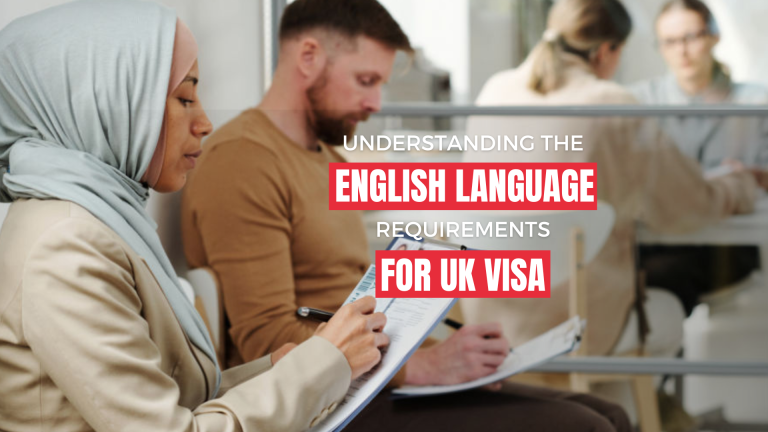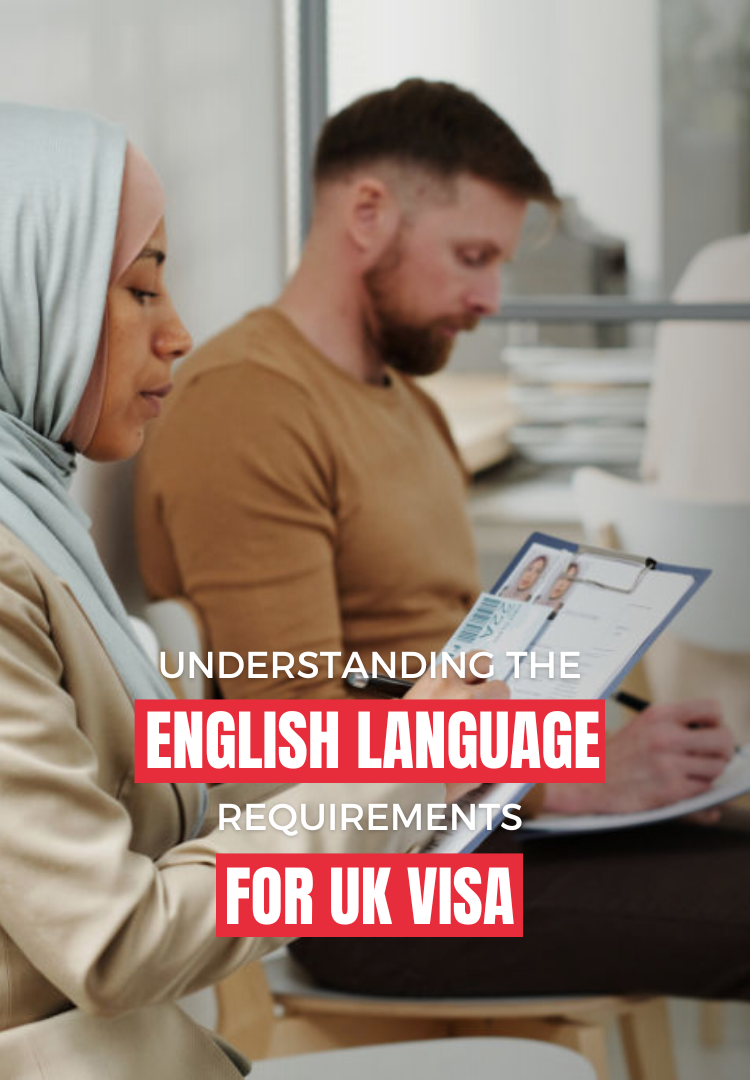

Understanding the English Language Requirements for UK Visas: A Guide
Disclaimer: please note this is a guide only. For all up-to-date information visit www.gov.uk
The UK government requires certain English language levels for people from non-English speaking countries who want to live, work, or study in the UK. These requirements are a part of the visa application process and differ based on the visa type. The aim is to make sure applicants can be part of the community, work or study effectively, and use public services.
English language requirements apply to many visa types, including work, study, family, and settlement visas. Applicants need to take approved English language tests (SELTs) that assess some or all of the following skills: reading, writing, speaking, and listening.
Visa Types and Required English Levels
1. Work Visas
- Tier 2 (General) Visa: You need to pass an English test at CEFR level B1 in all four skills: reading, writing, speaking, and listening.
- Tier 1 (Entrepreneur) and Tier 1 (Graduate Entrepreneur): These visas require a minimum English level of CEFR B1.
2. Study Visas
Tier 4 (General) Student Visa: The English level depends on your course. For courses below degree level, you need CEFR level B1. For degree level or above, CEFR level B2 is required.
3. Family and Partner Visas
Spouse/Partner/Fiancé(e) Visa: You must show English skills at least at CEFR level A1 for initial applications and A2 for extensions.
4. Settlement and Citizenship
To apply for indefinite leave to remain or British citizenship, you must pass an English test in speaking and listening at B1 level or higher, along with the Life in the UK test.
Approved Tests for English Language
Several tests are approved by the UK Home Office for visa applications, including:
- IELTS for UKVI
- Trinity College London Integrated Skills in English (ISE)
- Pearson PTE Academic UKVI
- LanguageCert International ESOL SELT
Who Does Not Need to Meet These Requirements?
Some people are exempt, like:
- Children under 18 and adults over 65.
- Applicants from certain countries where English is the main language.
- People with long-term health conditions, with medical documentation to support this.
How can Speak Up assist you?
At Speak Up, we’re dedicated to addressing common challenges faced by learners at this level, including:
- Fossilised errors
- Poor listening skills
- Limited vocabulary or paraphrasing skills
- Lack of confidence
- Lack of exam knowledge
Our teaching approach is designed to:
- Foster a natural and confident delivery from your first day
- Provide techniques for responding when you’re unsure of an answer
- Clarify exam structures to build confidence
- Offer mock tests for practice
- Correct repeated language errors
- Improve pronunciation for speaking and listening
(Last update: March 2024)


